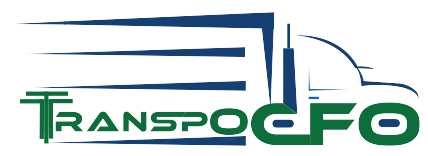How can Accounting and Dispatch Work Together?
The trucking industry is complex, and the roles within it are diverse. In this blog post, we’ll take a look at how accounting and dispatching work together to keep the trucking industry running smoothly. By understanding the relationship between accounting and dispatch, you’ll be better prepared to navigate this challenging but fascinating industry.
Relationship between accounting and dispatch
Accounting and truck dispatch are two of the most important functions in any company. They’re also the two that can be most easily overlooked.
The accounting team is there to ensure that all your financial records are up-to-date and accurate, but it’s also responsible for making sure that you have a clear understanding of where every piece of equipment in your fleet is at any given time.
On the other hand, the dispatch team is there to make sure everything runs smoothly when it comes to getting materials from one place to another. They need to be able to get those materials where they need them as quickly and efficiently as possible.
How can accounting help in dispatch?
● Obtain all of your deductions
Accounting can assist you by quickly detecting possible deductions throughout the year and advising you on how to make effective year-end deduction selections.
● Save time and energy
Accounting can help you maintain your concentration while also keeping you on track to meet your business objectives.
● Make decisions in real-time
Accounting can assist you with planning and tracking cash flow on a consistent basis, allowing you to manage any obstacles that arise in real-time.
Taking a collaborative approach to accounting helps you to make choices faster based on the most up-to-date data, as well as benefit from a consultative relationship that will assist you in making business decisions when you need them.
● Make plans for the future.
Finally, one of the most significant advantages of accounting is receiving advice on how to plan for the future. You may study the seasonality of your business by pulling information from previous months. This will allow you to decide the optimal time to plan for your future dispatch and budget for dispatching services, allowing businesses to remain competitive and sustainable.
Your One-Stop Shop to get both Accounting and Dispatch
At TranspoCFO, we are committed to offering our trucking industry partners with high-quality and economical accounting services, including financial solutions.
Accounting Operations
We offer a full Accounting and Operations View to guarantee that your business grows smoothly.
For example, when we offer you the monthly closing, we also highlight which routes make financial sense.
Trucking Operations
We also provide synchronized accounting and operations to guarantee that revenue leakages are avoided.
For example, if there is a detention cost or lumper fee, the accounting team will be aware of it due to the co-located Operations Team and will assure its payment.
Competitive Pricing
We provide the lowest combo price of Accounting and Dispatch packages in the industry.
Conclusion
In order for this trucking industry to run smoothly, there must be a coordinated effort between accounting and dispatch.
At TranspoCFO, we know how important it is for accounting and dispatch to work together effectively. If you’re looking for more information on this topic or need help coordinating your accounting and dispatch functions, please visit our website. We can help you make sure your trucking business runs like a well-oiled machine.
How can Accounting and Dispatch Work Together? Read More »


